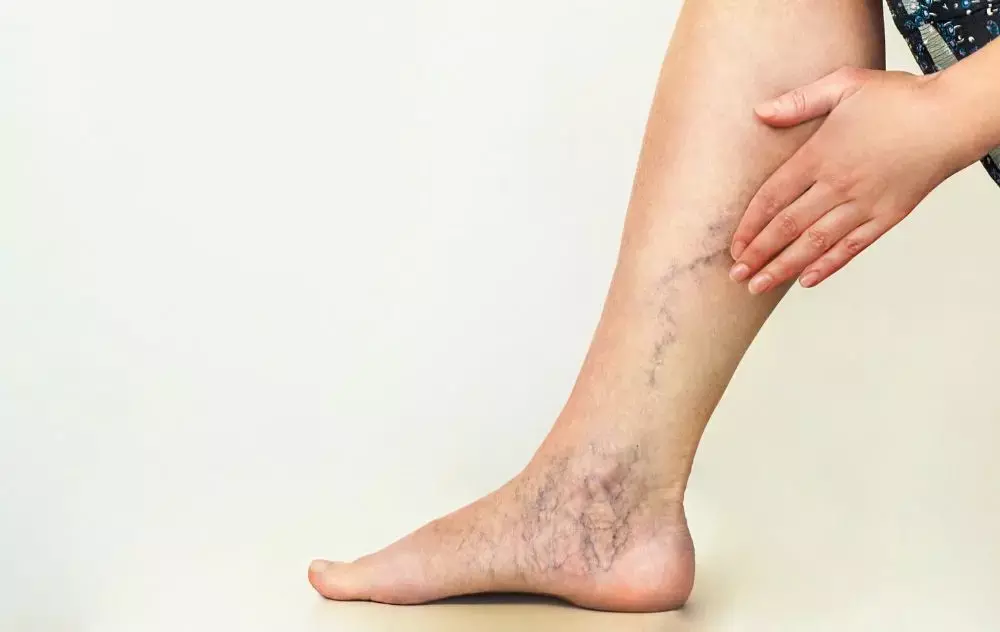- Home
- Medical news & Guidelines
- Anesthesiology
- Cardiology and CTVS
- Critical Care
- Dentistry
- Dermatology
- Diabetes and Endocrinology
- ENT
- Gastroenterology
- Medicine
- Nephrology
- Neurology
- Obstretics-Gynaecology
- Oncology
- Ophthalmology
- Orthopaedics
- Pediatrics-Neonatology
- Psychiatry
- Pulmonology
- Radiology
- Surgery
- Urology
- Laboratory Medicine
- Diet
- Nursing
- Paramedical
- Physiotherapy
- Health news
- Fact Check
- Bone Health Fact Check
- Brain Health Fact Check
- Cancer Related Fact Check
- Child Care Fact Check
- Dental and oral health fact check
- Diabetes and metabolic health fact check
- Diet and Nutrition Fact Check
- Eye and ENT Care Fact Check
- Fitness fact check
- Gut health fact check
- Heart health fact check
- Kidney health fact check
- Medical education fact check
- Men's health fact check
- Respiratory fact check
- Skin and hair care fact check
- Vaccine and Immunization fact check
- Women's health fact check
- AYUSH
- State News
- Andaman and Nicobar Islands
- Andhra Pradesh
- Arunachal Pradesh
- Assam
- Bihar
- Chandigarh
- Chattisgarh
- Dadra and Nagar Haveli
- Daman and Diu
- Delhi
- Goa
- Gujarat
- Haryana
- Himachal Pradesh
- Jammu & Kashmir
- Jharkhand
- Karnataka
- Kerala
- Ladakh
- Lakshadweep
- Madhya Pradesh
- Maharashtra
- Manipur
- Meghalaya
- Mizoram
- Nagaland
- Odisha
- Puducherry
- Punjab
- Rajasthan
- Sikkim
- Tamil Nadu
- Telangana
- Tripura
- Uttar Pradesh
- Uttrakhand
- West Bengal
- Medical Education
- Industry
Novel technique for treatment of chronic venous insufficiency found

Different treatment options are used for the treatment of chronic venous insufficiency (CVI), which impairs the quality of life, especially in later stages. Researchers of Turkey have found a novel modified technique for the treatment of chronic venous insufficiency. They found the combination of percutaneous embolization of SV (Saphenous Vein) with n-butyl cyanoacrylate (NBCA) and high ligation is safe and efficient in CVI. The research details were published in the Indian Journal of Surgery on April 20, 2020.
There are numerous surgical techniques used in the treatment of venous insufficiency. Surgical options are used in the case of failure with conservative treatment and pharmacological methods. Each of these techniques has its advantages and disadvantages. New hybrid methods are being developed to overcome adverse effects and possible complications such as deep vein thrombosis, phlebitis, and infections. With the same idea, the researchers of Bolu Abant Izzet Baysal University Faculty of Medicine conducted a study to evaluate and present a preliminary report on their novel technique ( a combination of percutaneous embolization of SV with n-butyl cyanoacrylate (NBCA) and high ligation).
Researchers included a total of 47 patients, aged between 28 and 62 years diagnosed with chronic venous insufficiency. They evaluated patients with a Comprehensive Classification System and Venous Clinical Severity Score (VCSS) for Chronic Venous Disorders. They recorded patients demographic features such as age and gender, and clinical features such as CEAP classes, VCSSs, and vena saphena magna VSM diameters. All patients were treated with a novel modified hybrid technique including Venablock embolization system and surgical high ligation of the greater SV. Researchers recorded the patient's preprocedural, intraprocedural, and postprocedural period follow-up data and analyzed them retrospectively.
They classified patients according to the CEAP classification, among 47 patients, 38 patients (80.8%) were classified as C3, six patients (12.8%) as C4, and three patients (6.4%) as C2. They found the mean preoperative VCSS of the patients was 8.83 ± 1.31 and the mean postoperative VCSS was 2.85 ± 0.71. They noted the mean postoperative VCSS was statistically significantly lower than the mean preoperative VCSS. They recorded no complications or side effects and the technical success rate was found to be 100%
The authors concluded, "We suggest that this novel method is efficient and safe in the treatment of chronic venous insufficiency because it eliminates the need for general anesthesia with short operation time and adhesion of all branches of the saphenous vein, thus preventing possible complications".
For further information:
https://link.springer.com/article/10.1007/s12262-020-02191-1#citeas
Medical Dialogues Bureau consists of a team of passionate medical/scientific writers, led by doctors and healthcare researchers. Our team efforts to bring you updated and timely news about the important happenings of the medical and healthcare sector. Our editorial team can be reached at editorial@medicaldialogues.in.
Dr Kamal Kant Kohli-MBBS, DTCD- a chest specialist with more than 30 years of practice and a flair for writing clinical articles, Dr Kamal Kant Kohli joined Medical Dialogues as a Chief Editor of Medical News. Besides writing articles, as an editor, he proofreads and verifies all the medical content published on Medical Dialogues including those coming from journals, studies,medical conferences,guidelines etc. Email: drkohli@medicaldialogues.in. Contact no. 011-43720751


